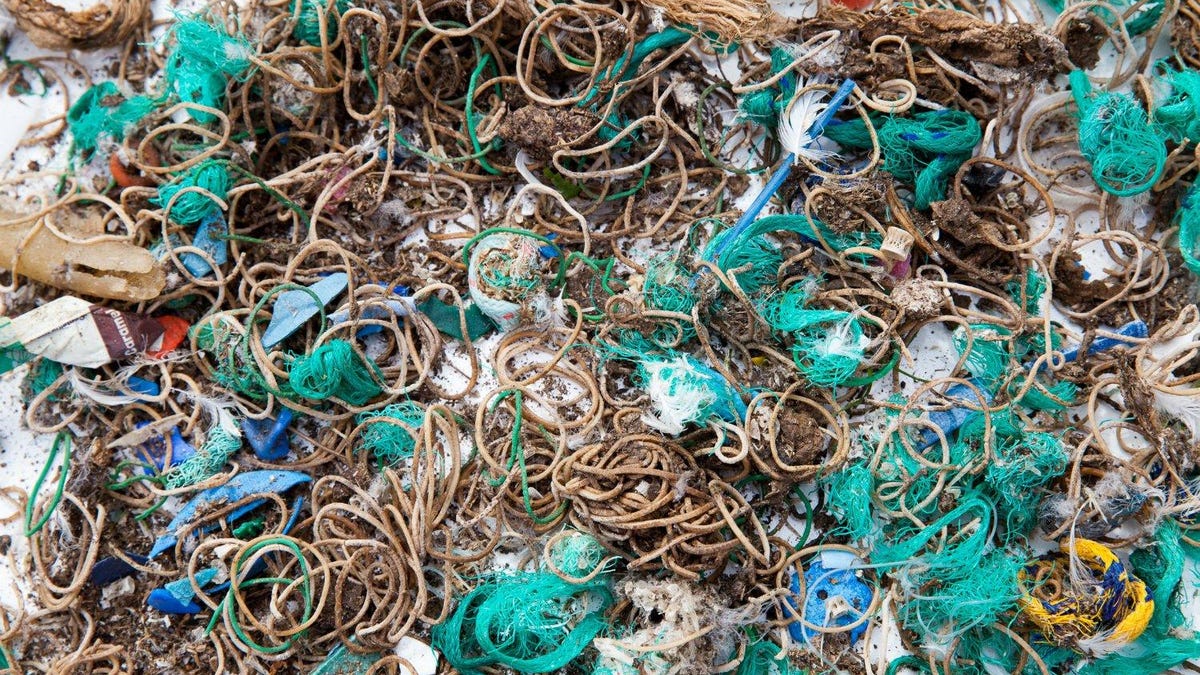Confused seabirds litter uninhabited island with thousands of elastic bands
Those aren't worms.

The National Trust suspects the birds mistook the elastic bands for worms in mainland horticultural areas where they're used to tie up flowers.
A remote, uninhabited island off the coast of Cornwall, England, held a surprise for conservationists: thousands of elastic bands.
Mullion Island is a nesting site for great black-backed and herring gulls, which seem to be confusing the rubber and elastic bands for worms. Visitors must obtain a permit before visiting the bird sanctuary.
"Despite being noisy and boisterous and seemingly common, gulls are on the decline. They're already struggling with changes to fish populations and disturbance to nesting sites -- and eating elastic bands and fishing waste does nothing to ease their plight," said National Trust ranger Rachel Holder in a release on Tuesday.
Volunteers picked up thousands of elastic bands on a remote island.
The National Trust is an independent charity organization dedicated to preserving UK nature and heritage sites. The group said it suspects the elastic bands came from mainland horticultural areas where they're used to tie up flowers.
Volunteers went to Mullion Island to clean up the litter. The bands were found mixed in with regurgitated pellets spit up by the avian residents. They didn't just find bands, but also bits of fishing net and twine.
"The gull breeding season was disappointingly poor in 2019 and these hidden human pressures are doing nothing to help our seabirds," said Mark Grantham from the West Cornwall Ringing Group, which monitors breeding birds and worked on the cleanup.
Many incidents involving animals and trash have emerged in recent years. Conservation group WWF-Indonesia shared the story of a dead whale found with a stomach full of flip-flops and plastic cups in 2018. Scientists even found plastic pollution in the deep ocean Mariana Trench.
The National Trust hopes the story of the elastic bands will convince businesses and consumers to reconsider their use of plastics and other single-use materials that can be a danger to wildlife. You wouldn't want to accidentally eat a rubber band, and neither do these birds.

